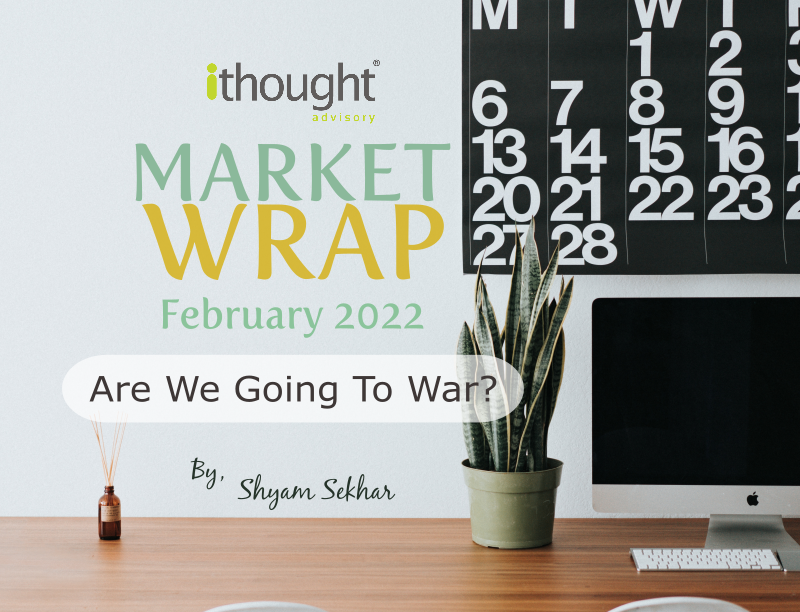
The prospect of a war is new to millennial investors. The last century had multiple wars that shook stock markets. These wars happened at the most unexpected times and created a ripple effect in global capital markets. But after every war, rebuilding also created its own impact on stock markets.
In recent years we only had posturing, and none of them led to war. As we write, it appears that the US, Russia, and Ukraine are positioning themselves in more ways to give us the fear of war. Whenever the fears of a war rise, we see rising commodity prices, rising oil prices, and falling stock markets. Risk aversion tends to get amplified during war mongering. The most overheated parts of the market tend to cool down and reflect more realistic valuation levels.
Businesses that benefit from war tend to spike sharply and hit all-time highs. Can there really be a war now? The answer lies in the financial preparedness of the principal players in the war drama. Evidently, nobody is financially ready for a war. The cost of waging a war cannot be borne by any of the key players. The prospects of recovering the costs of war from the weaker player are also not looking favourable. Under these circumstances, war mongering may well end up being posturing and not lead up to a full-fledge war like seen in the past.
What will save the world from the prospect of a war is the lack of financial resources. We need to focus on how these principal players reconcile and step back from their aggressive positions. In the meantime, the stocks markets will go down on the prospect of war, stabilise at some level and then wait for evidence until it moves in another direction. If the war prospects completely recede, the markets could see another relief rally.
Nations will definitely seek alternate ways to weaken their rivals economically and politically. They will want to isolate key rivals and cause them financial damage with the expectation of very low collateral damage upon themselves. This is what makes war a far more difficult choice in the 21st century than in the 20th century.
Having said that, it is quite likely that nations can still take risks that they ought not to. That would mean we could see events which we normally don’t expect to witness. These are very interesting times.